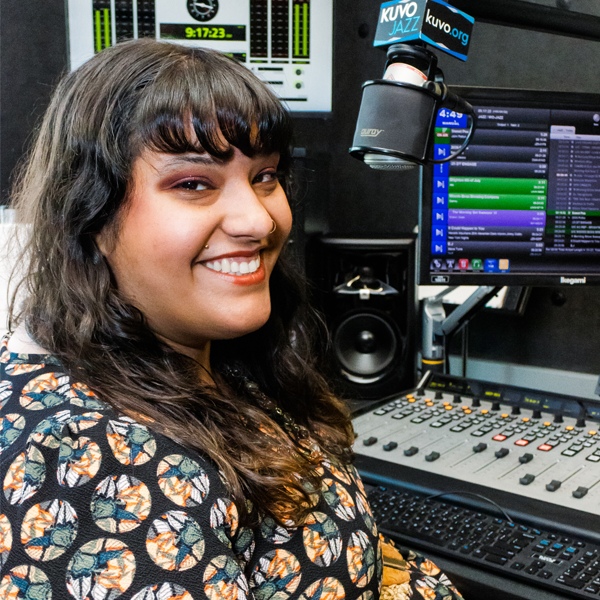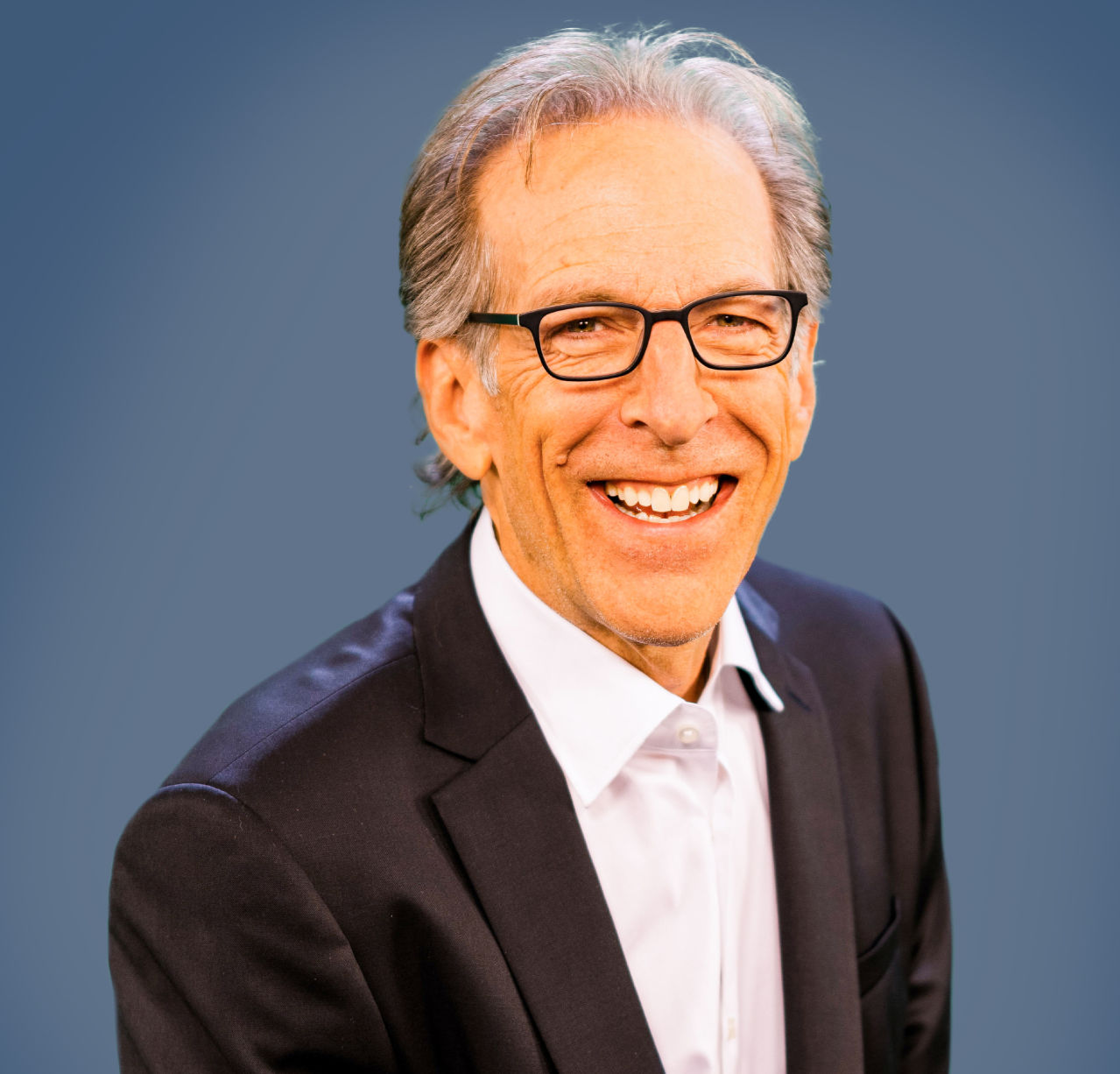Lizzo On Feminism, Self-Love And Bringing ‘Hallelujah Moments’ To Stage
Lizzo was in fifth grade when it came time to choose instruments for band. The choice was made for her when the music teacher paired her with the flute.
It turned out to be a good match: The singer and rapper fell in love with the instrument and went on to pursue a degree in music performance and music theory with the hopes of becoming a professional flutist. “I saw a life of concert black and Boston Pops and traveling the world,” Lizzo says. “When that didn’t pan out for me, I was very depressed.”
But Lizzo, who grew up in Detroit then Houston and found her footing in the Minneapolis music scene, was also a natural at freestyle rapping. She began working with local R&B and soul artists, eventually meeting and collaborating with Prince.
A self-described “showgirl at its finest,” Lizzo began touring even before she had albums. She says the high energy “hallelujah moments” of her shows reflect a childhood listening primarily to gospel music.
But Lizzo’s musical persona isn’t all flash. Her third studio album, Cuz I Love You — her major label debut under Atlantic Records — reveals a deep vulnerability, especially as she sings about self-love and body positivity. It’s a message born from Lizzo’s own long journey toward body acceptance.
“About 10 years ago, I made the decision that I just wanted to be happy with my body and I just wanted to be happy with who I am,” the artist says. “That was the beginning of my journey with learning how to love my body. … You have to find that love for yourself deep down inside, underneath all of that questioning and ickiness.”
Interview Highlights
On her role in producing Cuz I Love You
I am classically trained in music theory and music performance, so I have an innate ear and actually a highly skilled ear when it comes to frequency and harmony and dissonance and melody. So for me, it’s this thing that I can feel in my body. I’m almost like a tuning fork where if I hear the beat and I vibrate at the level that I’m supposed to, I know that that’s what I want to get on. And from being trained, I think it’s easier for me to speak a language to producers, and I can speak engineer to the engineers. I think we all just have so much fun nerding out. … I’m credited as a producer on a couple of the songs because I was there, and my DNA is in there as well.
On the idea that it’s odd to have a flute in rap music
You hear a lot of flute in rap! Have y’all heard of J Dilla? Have y’all heard of Metro Boomin? Like, these producers use flute all the time. One of the biggest hits was “Mask Off,” and … the chorus was just a flute solo. I think we don’t see rappers play flute. We hear it and we don’t subconsciously put two and two together. I think it would have been way more impactful to see Future actually playing the line on the flute to “Mask Off,” but he wasn’t.
I think that flute and hip-hop are very sexy. I think that flute and hip-hop have gone together for a long time. I think this is just the first time you actually see the artist actually playing the flute. There wasn’t a disconnect. Growing up in Houston, freestyle rapping was very first nature to me. That was what I wanted to do. That’s what you had to do as a rite of passage. I was very nerdy, and the fact that I knew how to freestyle on a bus, or freestyle in the cafeteria and bang on the desk, just gave me a little get-out-of-being-a-nerd-free pass.
Houston … that’s the city that freestyle really found its swag, and I’m just lucky that I was a part of that while it was happening — and also a classically trained flute player. I think it’s just weird to everybody else, but it’s not weird to me!
On writing “My Skin,” her first body positive song
Someone asked a question. … They asked me what’s my favorite thing about myself? And I told them my personality. And they said, “OK, but physically, what’s your favorite thing about yourself?” And I did not have an answer.
For the first time in my life I had to actually think about something that I liked about myself physically, and because it was so difficult, I was moved to tears.
In that moment, I remembered that I’d just fallen off a cliff. … I was rope swinging into the river, and I am just so heavy, and I fell off the rope and fell on the ground. It was really scary and traumatizing. I’ll never do anything like that again, but I scraped up my skin and I remember my friend was like, “Look what you did to your beautiful skin!”
I still had the cane and I had the bandages on my legs during this interview. And I looked down and I was like, “Oh, my God. My skin. That is my favorite thing about myself.” And it was in that moment where I realized I damaged my skin where I saw the value in it. That was the first time I’d ever discovered my body love, and I just started with my skin and moved on from there. I wrote this song to celebrate that moment because it literally changed my life.
The thing that I like about myself the most is the thing that’s weaponized against us. People with black skin, you know, we get that weaponized, and this was [during] the beginning of #BlackLivesMatter, when there was such a public amount of executions of unarmed black people by police officers. And so, I think that it was almost oxymoronic to be like, “I love my black skin,” when that was the thing that’s held against me the most in this society. I wanted to write a song about that too, and talk about how I’m proud of it no matter what.
On posing naked for her album cover
We had done a lot of poses that day, and I was tooting my butt up and then my back was hurting a little bit, so I just kind of relaxed and leaned forward and then the photographer, he was like, “Look at me,” and I looked at him, and that was the shot. So that was me just so comfortable not trying to cover anything up. But, you know, that’s just how the magic happens.
On how her wearing sexy clothing is seen as a feminist statement
I feel like if I were a thin woman, maybe that wouldn’t be the case. I feel like women who are smaller aren’t really given the opportunities to be body positive or role models either, because we’ve been conditioned to believe that women are using their bodies for the male gaze. … And I think if I were slimmer I don’t think people would look to me with the same type of like, “Oh wow, she’s so brave she’s doing this and representing everyone!” [the way they do,] because I’m big.
I think what’s happening here is that there’s different waves of feminism. It’s like a generational thing. … Like, one generation asks one thing, and then that next generation is going to ask the complete opposite of it.
So where there was a wave of feminism where we were burning bras, now I’m like, “Bitch, my bra is in your f****** face!” And I think that that is just a testament to human beings and how we evolve. … I think that the wave of feminism right now that’s overtly sexual and in your face I think is just the response to where we were. Like, I’m going to wear a suit and I’m going to boss up on you. … You-can’t-tell-me-what-to-do type vibes, and [I’m] like, “No, I’m gonna tell you what to do!”
Amy Salit and Seth Kelley produced and edited the audio of this interview. Bridget Bentz, Molly Seavy-Nesper and Sidney Madden adapted it for the Web.
9(MDA3NDU1Nzc2MDEzMDUxMzY3MzAwNWEzYQ004))
Become a Member
Join the growing family of people who believe that music is essential to our community. Your donation supports the work we do, the programs you count on, and the events you enjoy.
Download the App
Download KUVO's FREE app today! The KUVO Public Radio App allows you to take KUVO's music and news with you anywhere, anytime!



